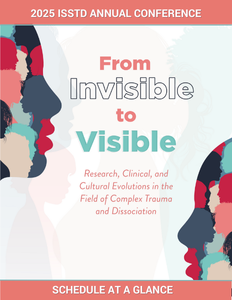Back
Single Paper or Case Study
Paper Session #3
SGM Members' Experiences of Institutional Betrayal in the Korean Counseling Industry
Sunday, March 16, 2025
1:30 PM – 3:00 PM US Eastern Time
Learning Level: Beginning

Jeeeun Kim, PhD
Adjunct Professor
Yonsei University
Seoul, Seoul-t'ukpyolsi, Republic of Korea
Abstract
Purpose
This study explores the experiences of sexual and gender minority (SGM) members within the Korean Counseling Psychology Association, with a focus on institutional betrayal. Institutional betrayal occurs when organizations fail to protect their members or indirectly contribute to harm through inaction or neglect. This research specifically examines how SGM members perceive their safety, acceptance, and potential for discrimination within a professional environment that should provide support and inclusion.
Methods
A survey was conducted among members of the Korean Counseling Psychology Association, with 757 total participants. This analysis focuses on the second part of the survey, which targeted the 94 members who self-identified as SGM. The survey included both quantitative questions regarding perceived discrimination, safety, and institutional support, as well as qualitative questions that invited participants to describe their personal experiences of bias and exclusion. Data were analyzed using descriptive statistics for the quantitative responses and thematic analysis for the qualitative data.
Findings
Among the SGM respondents, 73.4% reported not experiencing direct disadvantages related to education, training, employment, or promotion. However, over 30% of respondents had not disclosed their SGM identity to those involved in their professional training, which suggests that the actual rate of discrimination could be higher if identity disclosure were more widespread. Additionally, 64.9% of respondents expressed concern that revealing their identity could lead to professional disadvantages. Qualitative data revealed troubling instances of homophobic and transphobic remarks made by supervisors and authority figures within the association, which went unchallenged due to the authority of the individuals involved. This reflects a broader organizational issue where silence and inaction contribute to a sense of institutional betrayal, as SGM members do not feel safe or supported within the professional environment.
Conclusions
This study highlights the pervasive sense of institutional betrayal experienced by SGM members in the Korean Counseling Psychology Association. While explicit discrimination may not always be evident, the fear of potential harm and the organization’s failure to create a safe and inclusive environment are significant concerns. The findings suggest a pressing need for the association to adopt proactive measures that address these fears, foster inclusion, and ensure that all members, regardless of identity, feel protected and valued. Structural reforms are necessary to prevent further institutional betrayal and to create an environment where genuine safety and support are prioritized for SGM members.
Purpose
This study explores the experiences of sexual and gender minority (SGM) members within the Korean Counseling Psychology Association, with a focus on institutional betrayal. Institutional betrayal occurs when organizations fail to protect their members or indirectly contribute to harm through inaction or neglect. This research specifically examines how SGM members perceive their safety, acceptance, and potential for discrimination within a professional environment that should provide support and inclusion.
Methods
A survey was conducted among members of the Korean Counseling Psychology Association, with 757 total participants. This analysis focuses on the second part of the survey, which targeted the 94 members who self-identified as SGM. The survey included both quantitative questions regarding perceived discrimination, safety, and institutional support, as well as qualitative questions that invited participants to describe their personal experiences of bias and exclusion. Data were analyzed using descriptive statistics for the quantitative responses and thematic analysis for the qualitative data.
Findings
Among the SGM respondents, 73.4% reported not experiencing direct disadvantages related to education, training, employment, or promotion. However, over 30% of respondents had not disclosed their SGM identity to those involved in their professional training, which suggests that the actual rate of discrimination could be higher if identity disclosure were more widespread. Additionally, 64.9% of respondents expressed concern that revealing their identity could lead to professional disadvantages. Qualitative data revealed troubling instances of homophobic and transphobic remarks made by supervisors and authority figures within the association, which went unchallenged due to the authority of the individuals involved. This reflects a broader organizational issue where silence and inaction contribute to a sense of institutional betrayal, as SGM members do not feel safe or supported within the professional environment.
Conclusions
This study highlights the pervasive sense of institutional betrayal experienced by SGM members in the Korean Counseling Psychology Association. While explicit discrimination may not always be evident, the fear of potential harm and the organization’s failure to create a safe and inclusive environment are significant concerns. The findings suggest a pressing need for the association to adopt proactive measures that address these fears, foster inclusion, and ensure that all members, regardless of identity, feel protected and valued. Structural reforms are necessary to prevent further institutional betrayal and to create an environment where genuine safety and support are prioritized for SGM members.
Learning Objectives:
At the conclusion of this session participants will be able to:
- Identify the key elements of institutional betrayal as experienced by SGM members within professional organizations
- Discuss the impact of organizational silence and inaction on the well-being of SGM professionals in counseling environments
- Evaluate the potential barriers that prevent SGM individuals from disclosing their identities in professional settings and the associated risks
- Apply strategies to foster a safer and more inclusive environment for SGM clients and professionals within their own clinical practice or organizational roles
- Assess the need for structural reforms within professional associations to prevent institutional betrayal and promote ethical practices that protect all members

